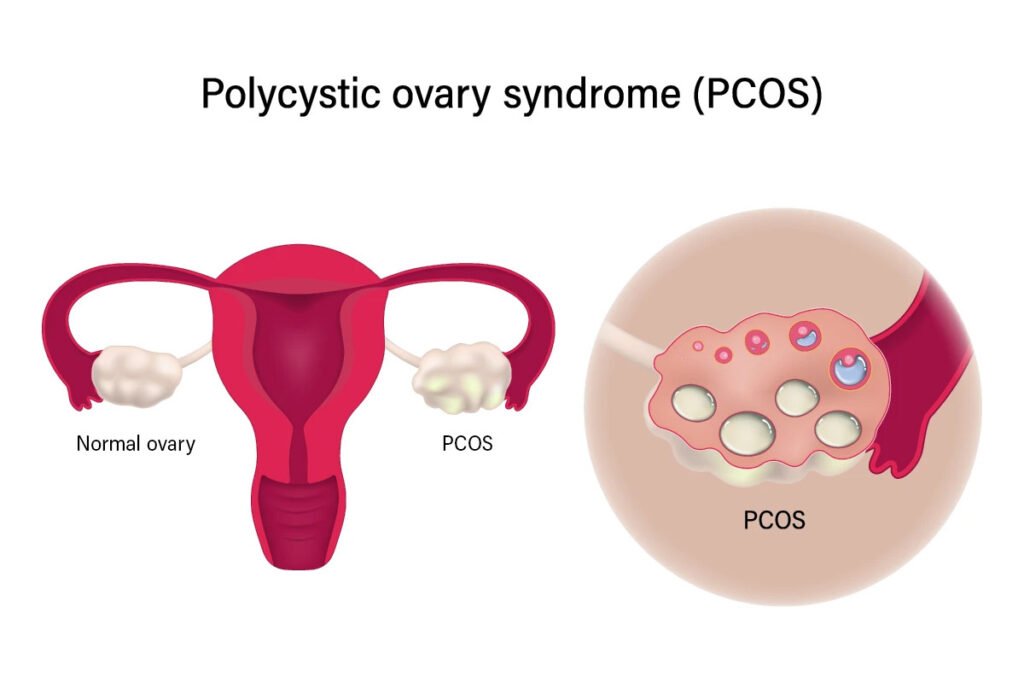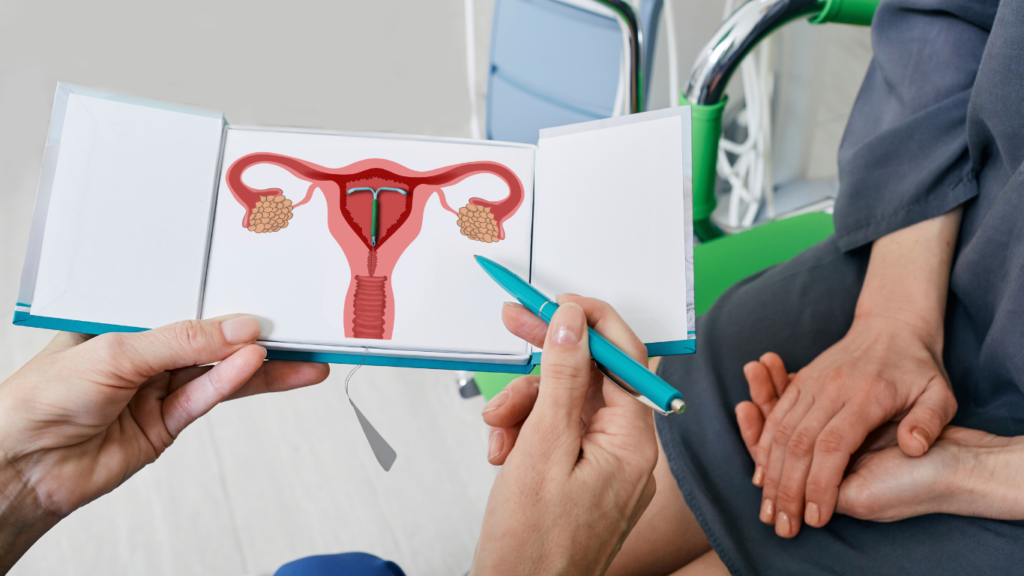Anti-Müllerian Hormone (AMH) levels are an important indicator of a woman’s ovarian reserve, which reflects her reproductive potential and ability to conceive. Low AMH levels can indicate diminished ovarian reserve, often leading to concerns for women planning a family. While several medical treatments are available to address low AMH, nutritional choices can play a vital role in supporting ovarian health and potentially enhancing AMH levels. Hyderabad’s top gynaecologist, Dr. Neelima Paleru, provides guidance on how a balanced and nutritious diet can support reproductive health and improve AMH levels naturally.
Understanding AMH Levels and Their Importance
AMH is a hormone produced by the cells surrounding each egg in a woman’s ovaries. A higher AMH level generally indicates a greater ovarian reserve, while lower levels can suggest fewer available eggs. This hormone level becomes particularly significant for women trying to conceive, as AMH helps predict how many viable eggs are left. While AMH levels naturally decline with age, lifestyle factors, including diet, can play a significant role in supporting ovarian health.
Hyderabad’s top gynaecologist, Dr. Neelima Paleru, advises that a well-planned diet can contribute to hormone balance, reduce oxidative stress, and support ovarian health, potentially leading to improved AMH levels.
Nutritional Diet to Improve AMH Levels
Incorporating certain nutrients into your daily diet can help support hormonal balance and ovarian health. Below are specific foods and dietary tips that can improve AMH levels naturally.
1. Healthy Fats for Hormonal Balance
Healthy fats are crucial for hormone production and regulation. They help in the production of sex hormones, including estrogen and progesterone, which are vital for reproductive health.
- Avocado: Rich in monounsaturated fats, avocados are great for balancing hormone levels.
- Olive Oil: High in healthy fats, olive oil helps to reduce inflammation and support hormone production.
- Nuts and Seeds: Walnuts, flaxseeds, and chia seeds provide essential fatty acids, which are crucial for hormone balance.
- Fatty Fish: Salmon, sardines, and mackerel are rich in omega-3 fatty acids, which reduce inflammation and support ovarian health.
Hyderabad’s top gynaecologist, Dr. Neelima Paleru, emphasizes the importance of including these fats for women experiencing low AMH levels, as they support overall hormonal health.
2. Antioxidant-Rich Foods to Combat Oxidative Stress
Oxidative stress can negatively impact ovarian function and lower AMH levels. Foods rich in antioxidants help neutralize free radicals in the body, reducing oxidative stress and supporting ovarian health.
- Berries: Blueberries, strawberries, and raspberries are packed with antioxidants that help protect eggs from oxidative damage.
- Dark Leafy Greens: Spinach, kale, and broccoli are high in vitamins A, C, and E, all of which support ovarian health.
- Green Tea: Known for its antioxidant content, green tea can be beneficial for reducing oxidative stress.
- Turmeric: This spice has anti-inflammatory properties that can help improve ovarian function.
According to Hyderabad’s top gynaecologist, Dr. Neelima Paleru, incorporating antioxidant-rich foods can play a key role in improving reproductive health by protecting the ovarian environment.
3. High-Quality Protein for Egg Health
Protein sources that are rich in amino acids are vital for cellular repair and function, including in the ovaries. Consuming adequate high-quality protein can improve egg quality and support AMH levels.
- Eggs: High in protein and essential nutrients like choline, eggs support reproductive health.
- Lean Meats: Chicken and turkey are excellent sources of protein that help maintain muscle and organ function.
- Lentils and Beans: These plant-based proteins are rich in folate and iron, which contribute to reproductive health.
- Greek Yogurt: Packed with protein, calcium, and probiotics, Greek yogurt supports gut health, which can indirectly impact hormone balance.
As Hyderabad’s top gynaecologist, Dr. Neelima Paleru, recommends, a diet with high-quality protein sources can support cellular health in the ovaries, leading to better egg quality and improved ovarian reserve.
4. Folate-Rich Foods for Egg Quality
Folate, a B-vitamin, is essential for DNA synthesis and cell division, both of which are important for egg quality and embryo development. Folate also plays a role in reducing homocysteine levels, an amino acid that can negatively impact fertility.
- Leafy Greens: Spinach, kale, and collard greens are excellent sources of folate.
- Asparagus: High in folate and antioxidants, asparagus is great for reproductive health.
- Citrus Fruits: Oranges, lemons, and grapefruits provide folate and vitamin C, which aids in iron absorption.
- Beans and Lentils: These legumes are rich in folate and other fertility-supporting nutrients.
According to Hyderabad’s top gynaecologist, Dr. Neelima Paleru, incorporating folate-rich foods can enhance egg quality, which in turn supports ovarian reserve.
5. Iron-Rich Foods to Support Ovarian Health
Iron deficiency has been linked to an increased risk of ovulatory infertility. Ensuring adequate iron intake is essential for women looking to improve AMH levels and overall reproductive health.
- Red Meat: A rich source of heme iron, red meat is easily absorbed by the body.
- Pumpkin Seeds: These seeds are high in iron and zinc, both important for reproductive health.
- Quinoa: A plant-based source of iron, quinoa is also a complete protein.
- Beetroot: High in iron, folate, and antioxidants, beetroot is beneficial for blood health and overall fertility.
As Hyderabad’s top gynaecologist, Dr. Neelima Paleru, advises, it is essential to ensure sufficient iron intake to support ovarian health and improve AMH levels.
6. Vitamin D for Hormone Regulation
Vitamin D plays a significant role in hormone regulation, including estrogen and progesterone production, which are essential for ovarian health. Low levels of vitamin D have been associated with lower AMH levels, making it crucial for women with low AMH to monitor their vitamin D levels.
- Fatty Fish: Salmon and sardines are excellent sources of vitamin D.
- Mushrooms: When exposed to sunlight, mushrooms become a plant-based source of vitamin D.
- Fortified Foods: Milk, orange juice, and cereals often come fortified with vitamin D.
- Sunlight Exposure: Direct exposure to sunlight is a natural way to boost vitamin D levels.
According to Hyderabad’s top gynaecologist, Dr. Neelima Paleru, maintaining adequate vitamin D levels can support ovarian function and hormone balance, helping improve AMH levels.
7. Whole Grains for Blood Sugar Balance
Blood sugar imbalances can negatively impact reproductive hormones, contributing to lower AMH levels. Whole grains provide fiber and essential nutrients that help stabilize blood sugar levels and support hormone balance.
- Oats: High in fiber and essential nutrients, oats help regulate blood sugar.
- Quinoa: A complete protein with a low glycemic index, quinoa supports blood sugar balance.
- Brown Rice: This whole grain is rich in fiber, manganese, and other nutrients.
- Barley: High in fiber, barley helps improve insulin sensitivity and blood sugar levels.
Hyderabad’s top gynaecologist, Dr. Neelima Paleru, recommends choosing whole grains over refined grains to support hormonal health and improve AMH levels.
Tips for a Balanced Diet to Support AMH Levels
- Stay Hydrated: Proper hydration is essential for cellular health and hormone balance. Aim to drink at least 8 glasses of water a day.
- Limit Processed Foods: Processed foods are high in trans fats, refined sugars, and artificial additives, which can disrupt hormone levels and impact AMH levels negatively.
- Reduce Sugar Intake: Excess sugar can lead to insulin resistance, which affects reproductive hormone balance. Focus on natural sugars from fruits instead.
- Avoid Alcohol and Caffeine: High caffeine and alcohol intake have been linked to hormonal imbalances. Limiting or avoiding these substances can help improve reproductive health.
- Include Probiotics: Gut health has a direct impact on hormonal health. Probiotic-rich foods like yogurt, kefir, and fermented vegetables support a healthy gut microbiome.
Improving AMH levels naturally requires a balanced approach that combines nutrition, lifestyle changes, and regular monitoring by a healthcare professional. By following a diet rich in antioxidants, healthy fats, high-quality protein, and essential nutrients, women can support their ovarian health and potentially improve their AMH levels. Hyderabad’s top gynaecologist, Dr. Neelima Paleru, emphasizes that while diet alone may not dramatically raise AMH levels, it is an essential component of a comprehensive approach to reproductive health. Working with a specialist ensures personalized guidance and support, leading to better reproductive outcomes.



